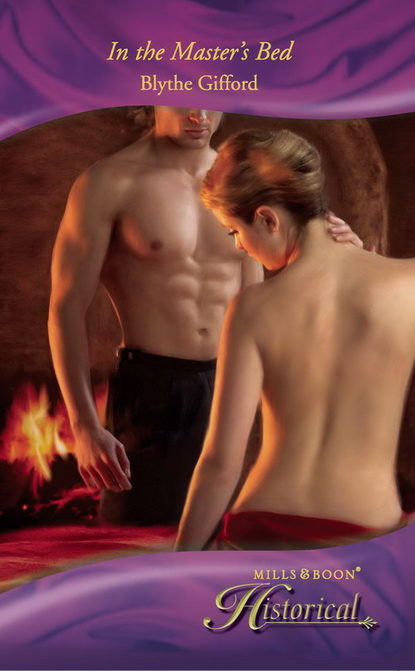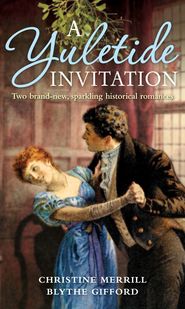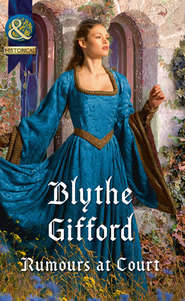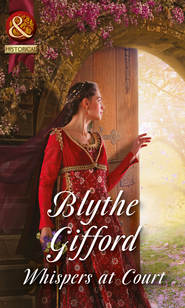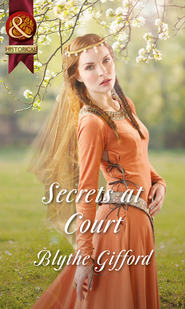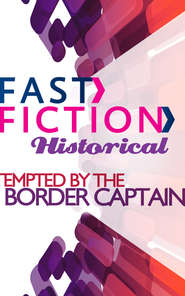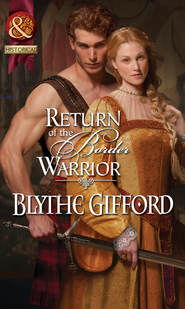По всем вопросам обращайтесь на: info@litportal.ru
(©) 2003-2025.
✖
In the Master's Bed
Настройки чтения
Размер шрифта
Высота строк
Поля
As they rode in silence, there was nothing to distract her from the breadth and strength of his back. He blocked the wind, but the heat that filled her came from some place inside. She had never been so close to any man, certainly not to one from the border lands.
Questions itched her tongue. Northerners were half-beasts, or so she’d been told. Yet he looked little different from other men.
‘Tell me about it,’ she said, finally, ‘where you’re from.’ She would not have another chance to ask.
He did not speak at first.
‘Full a’ mountains,’ he said, finally. ‘I’d lay a wager you’ve never seen a mountain.’
She shook her head, then realised he couldn’t see her. ‘No.’
‘Well, there’s fells and crags and becks—all of earth a man could ever want.’
This did not sound like the cold and gloomy Lucifer’s land she expected. ‘You like it, then?’
‘The soil speaks to me.’
‘That sounds like poesy.’ She bit her lip, afraid he would take insult, but he nodded.
‘The land is poem enough.’ He said the words without shame.
The pleasant phrase was more than she would have expected from a bumpkin. Still, God had given man dominion over the earth so he could control its fearsome power. Only a savage would choose to live in the wilderness.
Then he shook his shoulders, as if sloughing off a thought. ‘But it’s not home any longer. And where’s yours, lad? Answer me now. It’s not a fighting question.’
She chewed her lip, trying to think.
‘Is it?’ He looked over his shoulder.
The truth first. The lie second. ‘I’m from Essex, but I’ve been living near Bedford. With my uncle.’ She could say it safely. This man would not know the region. ‘Since my parents died.’
A family would prove inconvenient, so she orphaned herself without a qualm and braced for expressions of sympathy. She could answer with the appropriate emotion. After all, her father was dead.
But instead of clucking and compassion, she heard only a mumbled grunt that could have been ‘sorry’.
There was another stretch of silence. It seemed a man had much less to say than a woman.
‘I’m going to Cambridge to study law so I can serve the King,’ she said, finally. That was sure to impress him. He could probably not even read.
‘Oh, are you?’ He did not sound impressed. ‘And where did you school, then?’ He asked as if he knew something of schooling.
Too late, she realised she might have made a dangerous boast. ‘Uh, at home. With the priest.’ Schools were for boys.
‘And how old are you?’ Something more than a northern accent lurked in his tone. ‘Fifteen? You can’t be much past that. You’re still talking treble.’
She gulped, glad her voice had always been low for a woman. To pass as a boy, she was willing to lose a few years. ‘I’ll be fifteen after Candlemas.’ Only half a year away.
‘And this is your first time at University.’
‘Yes,’ she answered, before she realised it was not a question.
‘How much Latin do you have?’ His questions were coming thick and fast.
‘Some.’
‘Ubi ius incertum, ibi ius nullum,’ he said, with nary an accent.
It was something insulting about the law, that much she recognised.
‘Varus et mutabile semper femina,’ she answered, haltingly. An insult to women was always a good rejoinder.
‘Varium, not varus. “Woman is an ever fickle and changeable thing” not a bow-legged one.’
Her cheeks burned. The man was not the country simpleton she had thought. ‘I read better than I speak.’
‘I hope so. And you’re set on being a man of law?’ Amusement and disgust twisted in his tone.
She sighed. ‘Mostly, I wanted to get away from home.’
Another laugh. She was beginning to like the sound. ‘You’ll be in good company. Sometimes I think more come to university for that than for learning.’
At the burr in his voice, a pleasant buzz lodged between her legs where they nestled against him. More than pleasant.
Her sister had tried to explain it once, this thing between men and women. Solay had waxed poetic about bodies and hearts and souls and lifetimes. It sounded like a sickness, or worse, madness, meant to warp a woman’s mind so she would submit her life to a man’s control.
Jane had never felt such a thing and didn’t want to. Another way, perhaps, that she was different from other women.
But this, this was pleasant.
He shrugged, ‘I’ve not much use for lawyers, meself, but if you’re set on it, you’ll find John Lyndwood’s as good a master as there is.’
She mumbled something vague in reply. She didn’t need a Cumberland farmer’s advice about Cambridge, even if he had picked up a few Latin phrases.
She knew what to expect at University. Her sister’s husband had been educated at the Inns at Court in London and he’d told her all about it. There were lovely quadrangles and courtyards. She would stroll the gardens, read interesting books and debate their meaning with fellow students.
But as the horse ambled across the bridge and through the gate, the city pressed in around her, denting her dreams.
Houses jumbled tightly together in crooked, smelly streets, punctuated with gaps, like a row of pulled teeth, with only charred timbers to show where the burned-out homes had stood.
‘Where are you staying?’ Duncan asked, raising his voice to be heard over two squealing pigs chasing each other around the corner. ‘I’ll take you there.’
The late summer air was ripe with the smell of horse droppings and raw fish. Where was the peaceful, cloistered garden Justin had described? She had come to Cambridge because it was out of the way and her family was less likely to look for her here than in London or at Oxford. A mistake? She had wanted to be on her own, responsible to no one, but poised on the brink of it even a stranger with a northern tongue looked safe.
Her arms tightened around her rescuer.
‘Don’t squeeze the air outta me, boy.’
She released him quickly. This was no way for a man to act. ‘Let me down here.’ She scrambled off the horse to escape the contradictory feelings and the shelter of his back.





